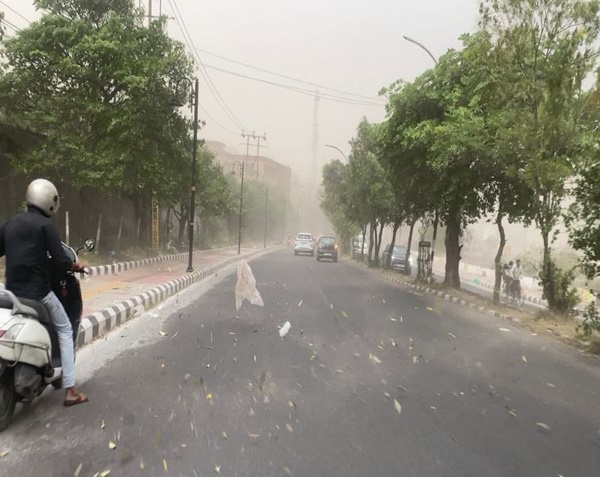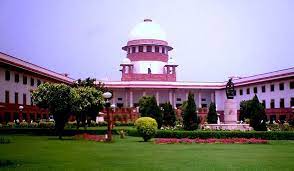Jammu and Kashmir Assembly Elections 2024: Congress Opposes BJP’s Pre-Election Nominations for 5 MLAs
By: Javid Amin
As the political landscape of Jammu and Kashmir (J&K) enters a critical phase with the upcoming 2024 Assembly Elections, a significant controversy has erupted. The Congress party has strongly condemned the ruling Bharatiya Janata Party’s (BJP) alleged move to nominate five members to the Legislative Assembly before the formation of a newly elected government. Labeling this attempt as undemocratic, Congress argues that such a move undermines the democratic process and the people’s mandate.
This article delves deeper into the unfolding political tensions, the reasons behind Congress’s opposition, and the broader implications for J&K’s political future. Additionally, we explore the role of refugees from Pakistan-occupied Jammu and Kashmir (PoJK), Kashmiri Pandits, and other minorities in this complex equation, and the historical context behind the reservation of seats in the Legislative Assembly.
Congress’ Opposition: A Stand for Democratic Integrity
The Jammu and Kashmir Pradesh Congress Committee (JKPCC), led by Senior Vice President and Chief Spokesperson Ravinder Sharma, has taken a firm stand against the BJP’s reported efforts to nominate members to the J&K Assembly before elections conclude. Sharma emphasized that such nominations should be left to the newly formed government after the elections, not to an appointed Lieutenant Governor (LG).
According to Sharma, the BJP’s move to nominate MLAs ahead of the election results is a blatant attempt to circumvent the electoral mandate. He highlighted that the electorate has the right to choose its representatives and any nominations before government formation would be an act of injustice. Congress has expressed concerns that nominating MLAs without the democratic endorsement of the people is an undemocratic approach that could affect the credibility of the elections.
“The authority to nominate these five members should rest with the newly formed government, not an appointed LG, as it would betray the will of the electorate,” said Sharma.
This stance reflects Congress’s belief that the democratic process should be protected, especially given the political significance of the upcoming 2024 elections. These elections will be the first held since the abrogation of Article 370, which stripped J&K of its special status and split the region into two Union Territories: Jammu & Kashmir and Ladakh.
Reservations for PoJK Refugees, Kashmiri Pandits, and Other Minorities: A Balancing Act
While Congress opposes the timing of the nominations, it supports the idea of reserving seats in the Legislative Assembly for marginalized communities such as PoJK refugees, Kashmiri Pandits, and other minorities. These groups have long been politically disenfranchised due to their displacement and underrepresentation.
Refugees from Pakistan-Occupied Jammu & Kashmir (PoJK)
The issue of PoJK refugees is deeply rooted in the history of the region. Following the partition of India in 1947 and the subsequent conflicts between India and Pakistan, many residents of areas that are now part of Pakistan-occupied Jammu & Kashmir were displaced. These refugees settled primarily in Jammu, where they have lived for decades without political representation in J&K’s Assembly.
There has been growing support for reserved seats for PoJK refugees to ensure their voices are heard in the Assembly. Congress, while advocating for their inclusion, has stressed that this must be done within the framework of democratic norms and not through undemocratic nominations that bypass the election process.
Kashmiri Pandits
The plight of the Kashmiri Pandits, who were forced to flee their homes in the 1990s due to militancy in the Valley, remains one of the most enduring scars of the conflict in J&K. Nearly half a million Pandits became internally displaced, and their political representation has since been minimal.
The Congress party has long supported the demand for reserved seats for Kashmiri Pandits in the Assembly, recognizing their significant cultural and political contributions. However, like with PoJK refugees, Congress insists that these reservations should be granted by an elected government, not through pre-election nominations.
Other Minority Communities
Apart from PoJK refugees and Kashmiri Pandits, other minority communities such as the Gujjars, Bakerwals, Sikhs, and Christians have also faced underrepresentation in J&K’s political landscape. Congress, in alignment with its commitment to inclusive governance, supports increased representation for these groups, but once again, emphasizes that this must be done democratically.
“Using nominations to dilute the people’s choice would be a grave injustice,” added Sharma, reiterating the party’s position that all decisions regarding representation should reflect the people’s mandate rather than political maneuvering.
BJP’s Move: A Political Strategy?
For the BJP, the 2024 J&K Assembly elections are a crucial test of its growing influence in the region, especially in the wake of Article 370’s abrogation. By nominating five members to the Assembly before the government is formed, it is widely speculated that the party may be attempting to consolidate its hold on the legislative process.
The BJP has emphasized that nominations for the five seats are in line with the Constitutional provisions, particularly in providing representation for marginalized groups like PoJK refugees and minorities. The party claims that these nominations are not only legitimate but also essential for ensuring diverse representation in the Assembly.
However, Congress views this as a political strategy by the BJP to secure an advantage in the Assembly even before the election results are declared. By nominating individuals with political alignments, the BJP could potentially influence the legislative process in ways that would benefit its long-term agenda in J&K.
The Stakes of the 2024 J&K Assembly Elections
The 2024 Jammu and Kashmir Assembly Elections are being closely watched, not just in the region but across India. This election marks the first significant electoral test in J&K since the abrogation of Article 370. The political stakes are high, as parties like Congress, BJP, and the regional People’s Democratic Party (PDP) and National Conference (NC) all vie for power.
For the BJP, the elections represent an opportunity to demonstrate the effectiveness of its policies post-Article 370, including efforts to integrate J&K more fully into the Indian Union. For Congress and other regional parties, the elections are a chance to reclaim political space and push back against what they view as BJP’s centralization of power in the region.
The voting process for the Assembly elections concluded peacefully on October 1, 2024, with the final phase covering 40 constituencies across Jammu and Kashmir. The counting of votes is set to take place on October 8, 2024, and the results will provide a clearer picture of the region’s political future.
Implications of Pre-Election Nominations
If the BJP proceeds with the nomination of five members before the results are declared, it could set a precedent with far-reaching implications for J&K’s democracy. Critics argue that this would further erode trust in the electoral process and could deepen the political divisions in the region.
Congress’s call for the nominations to be left to the newly formed government is an attempt to safeguard the sanctity of the elections. In a region that has already faced decades of political instability and disenfranchisement, it is crucial that any decisions related to representation be made in a way that respects the will of the people.
Bottom-Line: A Defining Moment for Jammu & Kashmir
The Jammu and Kashmir Assembly Elections 2024 are more than just a political contest—they represent a defining moment for the future of democracy in the region. The controversy over the nomination of MLAs is a reflection of the broader struggle between democratic integrity and political expediency.
While reservations for PoJK refugees, Kashmiri Pandits, and minorities are essential to ensuring inclusive representation, these decisions must be made by an elected government. Congress’s opposition to pre-election nominations is rooted in a desire to protect the democratic process and prevent any manipulation of the electoral outcome.
As the elections draw to a close and the results await, the political future of Jammu and Kashmir hangs in the balance. The choices made in the coming weeks will have significant implications for the region’s governance, its people, and the future of democracy in this long-contested part of India.



